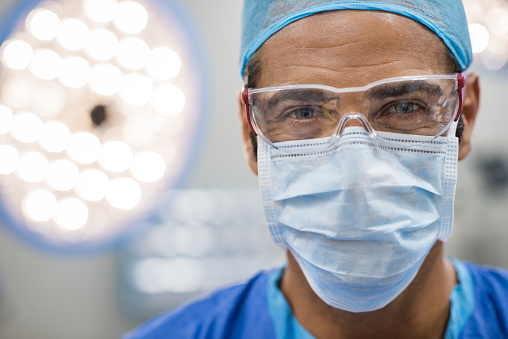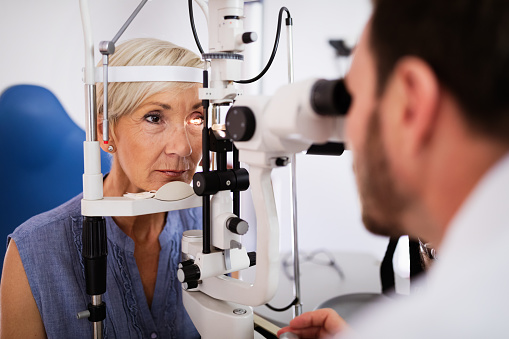Sussex Premier Health, Hastings: Important update for patients with upcoming appointments
Sussex Premier Health, Hastings: Important update for patients with upcoming appointments
Clear vision transforms everyday life. At Sussex Premier Health, we offer expert cataract surgery in Sussex Kent and the South East, helping you regain clarity and confidence. Our skilled surgeons use advanced techniques to safely and effectively replace clouded lenses, restoring your eyesight with precision and care. With personalised treatment plans and focusing on your comfort, we ensure a smooth experience from consultation to recovery. If you’re searching for trusted cataract surgery in Sussex, our team is here to deliver excellent results and support you every step of the way. See life more vividly with our specialised care.

Cataract surgery is a common procedure that helps restore clear vision by replacing the cloudy lens in your eye with an artificial one. When the natural lens becomes cloudy, it can cause blurred vision, glare, and difficulty with daily tasks such as reading, working, or driving. This condition is more common in individuals over 65, although certain health issues can lead to earlier development. Our expert cataract surgeons use advanced techniques to perform this highly effective treatment, improving vision and quality of life. While some people may still require glasses after surgery, the procedure significantly reduces the challenges caused by cataracts.
When it comes to something as important as your vision, you deserve outstanding care. Sussex Premier Health is proud to offer expert-led private cataract removal surgery performed by highly qualified consultants. Our hospital blends compassionate care with advanced medical expertise, ensuring a seamless consultation and recovery experience. Each procedure is tailored to the individual, accounting for unique vision needs and lifestyles. With fast access to appointments and the benefit of being co-located with NHS emergency services, Sussex Premier Health provides a trusted, reliable option for cataract surgery in Sussex.

Cataract removal surgery is a safe and efficient procedure that significantly improves quality of life by restoring clear vision. For those with cataracts, blurry or clouded eyesight can make daily tasks challenging. Patients can regain independence and enjoy a brighter, more vibrant world by choosing to improve their vision with cataract surgery. The procedure offers long-lasting results and ensures a fast recovery from cataract surgery, allowing individuals to confidently resume their routines. Below are some of the key benefits of cataract removal surgery:

Preparing for your procedure ensures a smooth experience and positive results. At every stage, from the initial consultation to aftercare, you’ll receive clear guidance and support. Your consultant will explain the process, address concerns, and help you choose the most suitable option. Affordable cataract surgery options are available to match your needs and lifestyle. Here’s an overview of what you can expect throughout the process so you feel fully informed and ready for your treatment:

Your vision deserves the expertise of trusted eye care specialists in Sussex. Take control of your eye health with care and solutions designed to meet your unique needs. Our team is committed to delivering precise, lasting results that enhance your quality of life. Schedule your consultation and experience professional care in a supportive environment. We are ready to assist you whether you need treatment options or further guidance. Contact us today to start your path toward improved vision. We look forward to supporting you on your eye care journey.
Your surgery will be performed by your consultant surgeon.
Intraocular lenses (IOLs) are designed to last for many years so you shouldn’t need to replace them. A cataract operation should only need to be done once in each eye.
Your ophthalmologist will advise you when you can drive again, so always check with them first. You’re fit to drive when your vision meets DVLA standards, which may mean waiting for new glasses. You can get your eyes tested at six to 12 weeks after your operation. You’ll also need to wait until you’ve fully recovered from the anaesthetic and ensure you’re not taking any pain medication that could make it unsafe for you to drive.
In four to six weeks, you should be fully back to normal with no side effects.
Your vision may be blurry for seven to 10 days after surgery.
Generally, your vision shouldn’t deteriorate after cataract surgery (unless you develop another condition, such as glaucoma). Your close vision will continue to decline naturally with age. However, some people experience posterior capsule opacification (PCO) which causes cloudiness or blurred vision. This can be treated with laser surgery to make your vision clear again and doesn’t usually cause long-term problems.
You should avoid swimming, strenuous exercise or housework and don’t drive until your ophthalmologist says so. Don’t allow soap or shampoo to into your eye and you should also avoid eye make-up for at least four weeks.
Speak to a member of our team